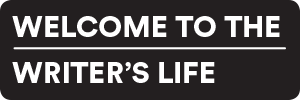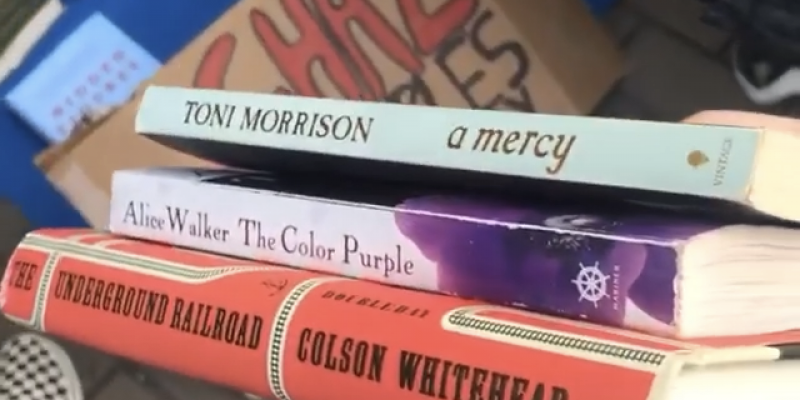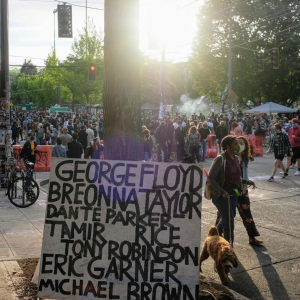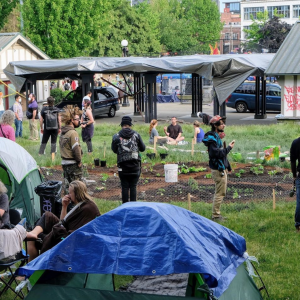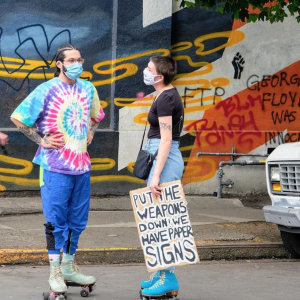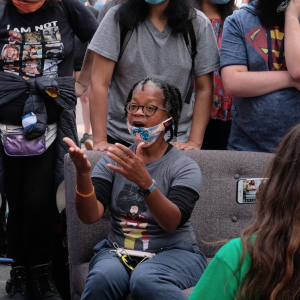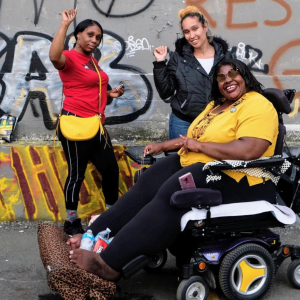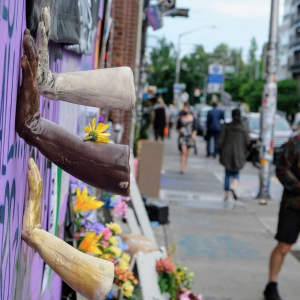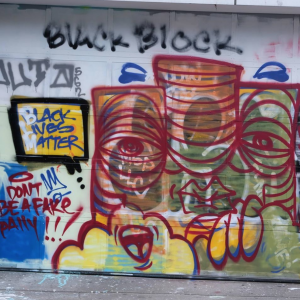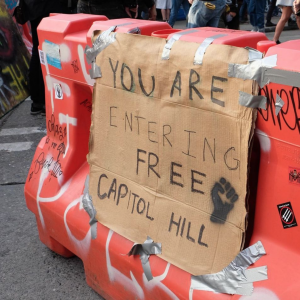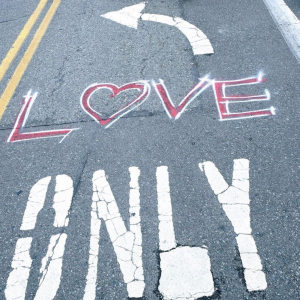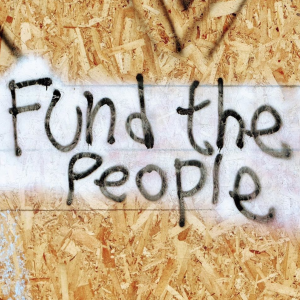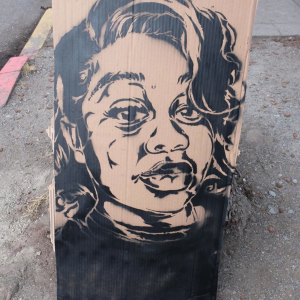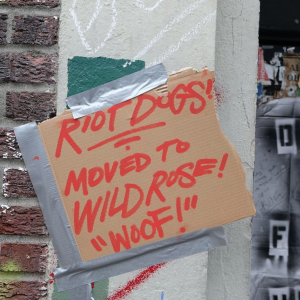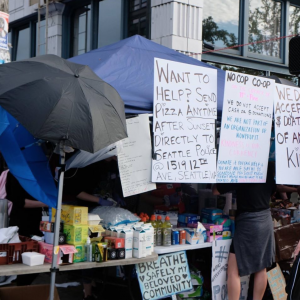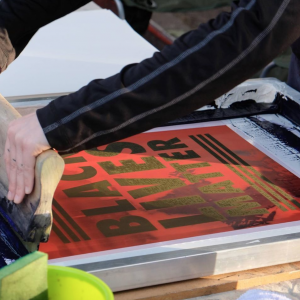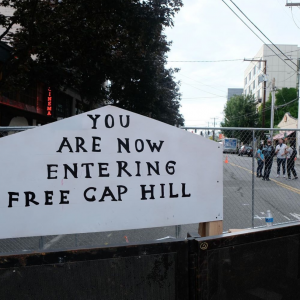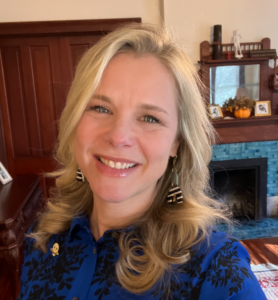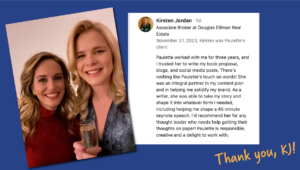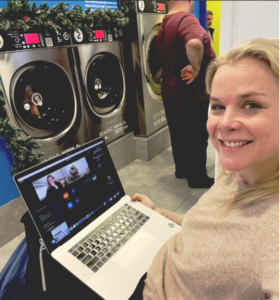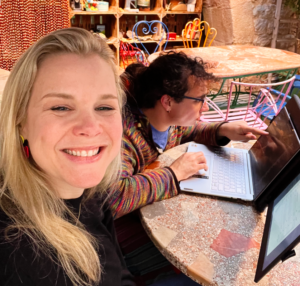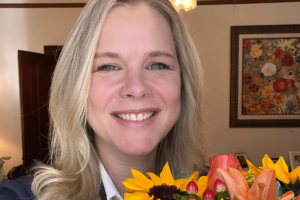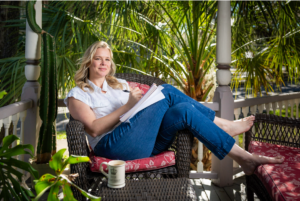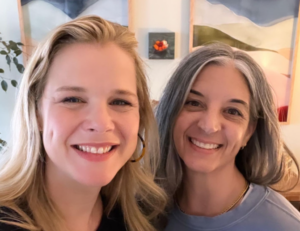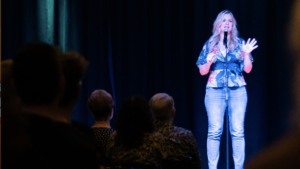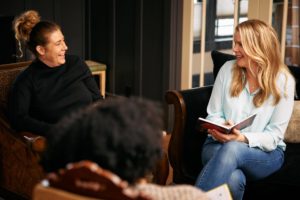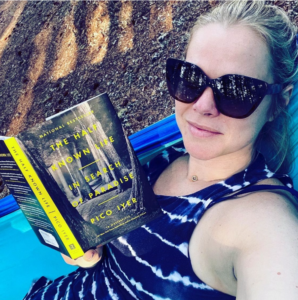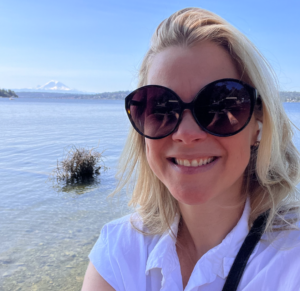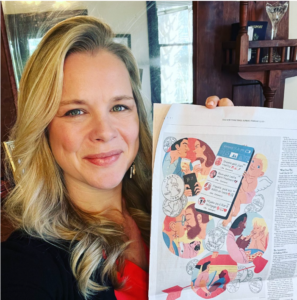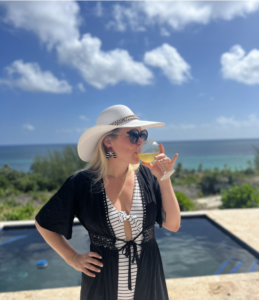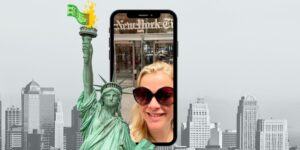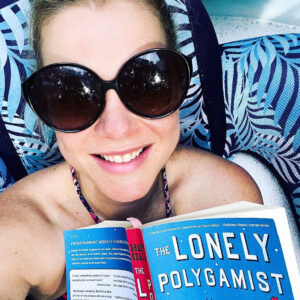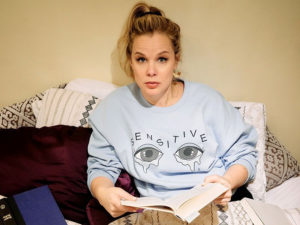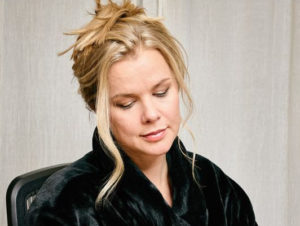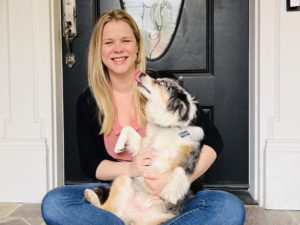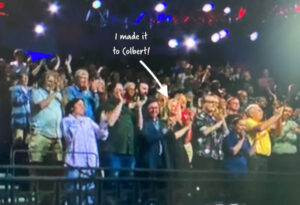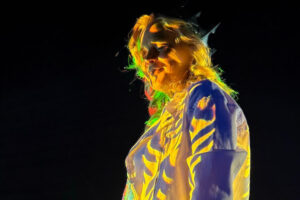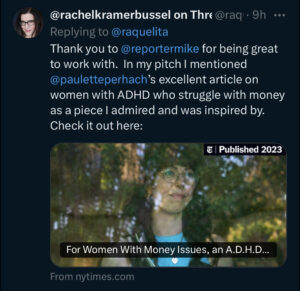“White privilege is your history being taught as a core class and mine being taught as an elective.” – Ozy Aloziem
Since 2011 and until February, I lived in Capitol Hill, Seattle, where I would often pass this sign posted to a telephone pole, which says something like, “There used to be a forest that extended from here to the sea.”
Signed, a squirrel.
I never lived in the forest, I never knew the forest, so its destruction is an abstraction.
I live in a country where we’ve constructed an abstraction of our past. My education carved out the history that would be most palpable. The point of view of this education was always inside white, looking out.
I didn’t see this at the time, of course. And most white people never scratch the surface hard enough to wonder if there’s anything underneath. They’d find a lot of dead bodies down there.
I watched Eric Garner die. I did not watch George Floyd die.
The Monday after his death, I scrolled and retweeted and scrolled and retweeted.
Tuesday, I went out to where people were protesting. While the news spread the footage of rage and fire, I heard voices on mics sharing pain and sadness.
Wednesday, I went out.
Friday, I marched silently, thinking.
Capitol Hill set up an autonomous zone, known as CHAZ or CHOP. I walked around to see it for myself.
I saw things I could have never imagined: a garden in the middle of the public park. A police precinct shut down, “people’s” spraypainted over “police.” People talking, really, about silence, rights, authoritarianism. A blanket laid out on the sidewalk had a sign that said, CHAZ People’s Library. From the books there I picked up The Underground Railroad by Colson Whitehead, The Color Purple by Alice Walker, and A Mercy by Toni Morrison. How have I never read The Color Purple?
It was never assigned to me.
I never chose to read it.
And how would it have changed me if I had? What am I missing that I haven’t? When I see “I” as the protagonist, who do I immediately picture? A white man. Maybe a white woman. Until I’m told otherwise.
We’re playing the same game set up by slavers, asking ourselves what to do next. I don’t have the education to say. I was required to learn about the slave traders, whom we called explorers. I was not required to learn about the people they kidnapped, whom we called slaves.
I Need a Better Education to Be a Better Ally
Once, on a plane, the man next to me said, “The only functional countries are run by white men, did you ever notice that?”
I had only the education to sit there with my mouth open, knowing that what he was saying was wrong.
I didn’t have the education to say, “Well I think that’s because the white men were the ones who invaded countries and made slaves of people, stole rooms of gold and centuries of labor. They drew the country lines of Africa without respect for the territories, dividing tribes and banding others together. Do you think that might play a role in your perception of what’s going on today?”
And let his mouth hang open.
I graduate college without an understanding of colonialism. I had to board planes, climb mountains, read books like The Last Days of the Incas to understand, to look at a Spanish cathedral and no longer ooh and ah, but sneer, thinking about the Incan slaves who built it.
I had to educate myself, and that education will continue for the rest of me.
What now, we all must ask.
How will we respond?
My response always feels like getting very still and emptying. Trying to remember I have no idea what reality is. But then, you must do something. Even if it’s to check Twitter yet again.
Here’s my Step 1, for it always feels like Step 1. It’s a compilation of requests from Black voices. It’s watching and learning.
So unless I’m totally off-base here, I’m going to dedicate a year of my reading to black authors. Because the thing I can do is give this year of change to my ears opening to black voices.
Here’s why:
Black leaders are asking us to listen deeply, to learn.

This week I was reading for my coaching student, Liz Covey, and in her work she wrote, “I have heard leaders in the Black community such as Meera Mohan Graham ask for us White folks not to boldly lead, but to absorb and amplify the voices of those who have been long at work in these movements, which she pinpointed numerically as ‘80% absorption and 20% amplification.’ Meaning, above all: TAKE THIS IN. You can act later. Now is the time to watch and learn.”
If I read for just a short while, or just a few books, I might hit the antiracist books and stop there. They’re important, but not the only books to be considered. Fadama Hailie reminded me I need to go beyond that:

Picking a syllabus:
The classes I never took offer syllabi for us to follow: Survey of African American Literatures I: Beginnings through the Harlem Renaissance at my alma mater, University of Florida says that by the end of the semester, I should:
- Become familiar with critical periods, discourses, and writers in the African American literary tradition and develop an understanding of the historical and cultural contexts that shape that tradition, specifically in the early national, reconstruction, and early twentieth-century periods.
- Gain the confidence and ability to speak in a sophisticated and critical fashion about African American literature.
I looked at 10 classes on African American lit, and here are the most common required texts:
- A Raisin in the Sun by Lorraine Hansberry (play and movie)
- Black No More by George S. Schuyler
- Incidents in the Life of a Slave Girl by Harriet Jacobs
- Invisible Man by Ralph Ellison
- Narrative of the Life of Frederick Douglass by Frederick Douglass (I read this in 2018 and my heart still aches about his grandma, out there in the woods.)
- Native Son by Richard Wright
- Norton Anthology of African American Literature Vol. 1
- The Souls of Black Folk by W.E.B. Du Bois
- Their Eyes Were Watching God by Zora Neale Hurston (one book I did read in high school)
- Up From Slavery by Booker T. Washington
I’ve read two of these.
If you have children, you might think about including them.
“White people didn’t grow up having to empathize with Black characters but Black people had no choice because the only images we saw were those of white characters. If that’s true, all the more reason it is important for white parents to buy books with diverse characters and themes,” said Tricia Elam Walker, “Why Diverse Books Are Important for Everyone-Not Just Marginalized Kids.”
Reading Toward Black Liberation
I also noticed tweets about this list from The Schomburg Shop popping up:
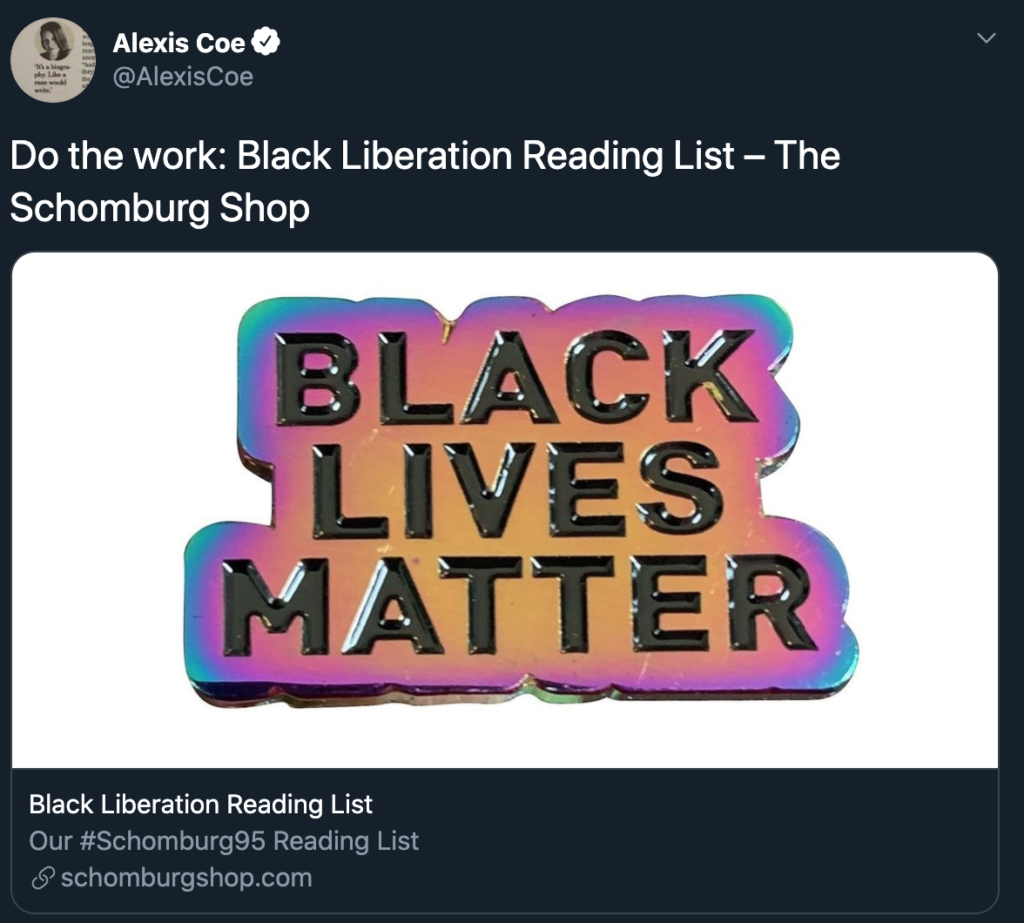
“The 95 titles on the list represent books we and the public turn to regularly as activists, students, archivists, and curators, with a particular focus on books by Black authors and those whose papers we steward,” their website says.
The list:
I bolded the books I’m especially interested in (mostly because these writers have been recommended to me or I follow them on the socials), and noted where I’d read one before and recommend:
- All the Women Are White, All the Blacks Are Men, But Some of Us Are Brave: Black Women’s Studies by Akasha Gloria Hull, Patricia Bell-Scott & Barbara Smith, eds.
- American Sonnets for My Past and Future Assassin by Terrance Hayes
- The Art of Death: Writing the Final Story by Edwidge Danticat
- The Autobiography of Malcolm X by Malcolm X as told to Alex Haley
- Bad Feminist: Essays by Roxane Gay (Recommend)
- Between the World and Me by Ta-Nehisi Coates (Recommend)
- Biased: Uncovering the Hidden Prejudice That Shapes What We See, Think, and Do by Jennifer L. Eberhardt
- The Black Jacobins: Toussaint L’Ouverture and the San Domingo Revolution by C.L.R. James
- A Black Women’s History of the United States by Daina Ramey Berry & Kali Nicole Gross
- The Bluest Eye: A Novel by Toni Morrison
- Breathe: A Letter to My Sons by Imani Perry
- A Brief History of Seven Killings: A Novel by Marlon James
- Brown: Poems by Kevin Young
- Brutal Imagination by Cornelius Eady
- Citizen: An American Lyric by Claudia Rankine (Recommend)
- The Collected Poems of Lucille Clifton 1965–2010 by Kevin Young and Michael S. Glaser, eds.
- The Condemnation of Blackness: Race, Crime, and the Making of Modern Urban America by Khalil Gibran Muhammad
- The Cooking Gene: A Journey Through African American Culinary History in the Old South by Michael W. Twitty
- Democracy in Black: How Race Still Enslaves the American Soul by Eddie S. Glaude, Jr.
- Diasporic Blackness: The Life and Times of Arturo Alfonso Schomburg by Vanessa K. Valdés
- Don’t Call Us Dead: Poems by Danez Smith
- Eloquent Rage: A Black Feminist Discovers Her Superpower by Brittney Cooper
- Farming While Black: Soul Fire Farm’s Practical Guide to Liberation on the Land by Leah Penniman
- Feel Free: Essays by Zadie Smith
- Fences by August Wilson
- The Fifth Season by N.K. Jemisin (This woman won the Hugo Award three years in a row!)
- The Fire Next Time by James Baldwin
- The Fire This Time: A New Generation Speaks about Race by Jesmyn Ward, ed.
- Freedom Is a Constant Struggle: Ferguson, Palestine, and the Foundations of a Movement by Angela Y. Davis
- From #BlackLivesMatter to Black Liberation by Keeanga-Yamahtta Taylor
- Harlem Nocturne: Women Artists and Progressive Politics During World War II by Farah Jasmine Griffin
- Heavy: An American Memoir by Kiese Laymon
- High on the Hog: A Culinary Journey from Africa to America by Jessica B. Harris
- The History of White People by Nell Irvin Painter
- Hood Feminism: Notes from the Women that a Movement Forgot by Mikki Kendall
- How to Be an Antiracist by Ibram X. Kendi
- How We Fight for Our Lives: A Memoir by Saeed Jones
- I Know Why the Caged Bird Sings by Maya Angelou
- In Search of Our Mothers’ Gardens: Womanist Prose by Alice Walker
- Jubilee: Recipes from Two Centuries of African American Cooking by Toni Tipton-Martin
- Just Mercy: A Story of Justice and Redemption by Bryan Stevenson
- Kindred by Octavia E. Butler
- Kwame Brathwaite: Black Is Beautiful by Kwame Brathwaite
- The Light of the World: A Memoir by Elizabeth Alexander
- Locking Up Our Own: Crime and Punishment in Black America by James Forman, Jr.
- Malcolm X: A Life of Reinvention by Manning Marable
- Me and White Supremacy: Combat Racism, Change the World, and Become a Good Ancestor by Layla F. Saad
- Men We Reaped: A Memoir by Jesmyn Ward
- Monument: Poems: New and Selected by Natasha Trethewey
- My Song: A Memoir by Harry Belafonte
- Negroland: A Memoir by Margo Jefferson
- The New Jim Crow: Mass Incarceration in the Age of Colorblindness by Michelle Alexander
- The Nickel Boys by Colson Whitehead
- Overground Railroad: The Green Book and the Roots of Black Travel in America by Candacy Taylor
- Parable of the Sower by Octavia Butler, adapted by John Jennings, art by Damian Duffy
- Parenting for Liberation: A Guide for Raising Black Children by Trina Greene Brown
- Playing in the Dark: Whiteness and the Literary Imagination by Toni Morrison
- Pleasure Activism: The Politics of Feeling Good by adrienne maree brown
- Policing the Planet: Why the Policing Crisis Led to Black Lives Matter by Jordan T. Camp & Christina Heatherton
- Posing Beauty: African American Images from the 1890s to the Present by Deborah Willis
- Pushout: The Criminalization of Black Girls in Schools by Monique W. Morris
- A Raisin in the Sun by Lorraine Hansberry
- Redefining Realness: My Path to Womanhood, Identity, Love & So Much More by Janet Mock
- S O S: Poems 1961–2013 by Amiri Baraka
- Shake Loose My Skin: New and Selected Poems by Sonia Sanchez
- Sister Outsider by Audre Lorde (Recommend)
- So You Want to Talk About Race by Ijeoma Oluo (Recommend)
- The Social Life of DNA: Race, Reparations, and Reconciliation After the Genome by Alondra Nelson
- Stamped from the Beginning: The Definitive History of Racist Ideas in America by Ibram X. Kendi
- Stony the Road: Reconstruction, White Supremacy, and the Rise of Jim Crow by Henry Louis Gates, Jr.
- The Street by Ann Petry
- Survival Math: Notes on an All-American Family by Mitchell S. Jackson
- Sweat by Lynn Nottage
- Talking Back: Thinking Feminist, Thinking Black by bell hooks
- Their Eyes Were Watching God by Zora Neale Hurston (Recommend)
- Thick: And Other Essays by Tressie McMillan Cottom
- The Tradition by Jericho Brown
- The Underground Railroad by Colson Whitehead (Recommend)
- Vibration Cooking: or, The Travel Notes of a Geechee Girl by Vertamae Smart-Grosvenor
- Voyage of the Sable Venus: And Other Poems by Robin Coste Lewis
- Wade in the Water: Poems by Tracy K. Smith
- The Warmth of Other Suns: The Epic Story of America’s Great Migration by Isabel Wilkerson
- The Ways of White Folks by Langston Hughes
- Wayward Lives, Beautiful Experiments: Intimate Histories of Social Upheaval by Saidiya Hartman
- We Should All Be Feminists by Chimamanda Ngozi Adichie
- We Want to Do More Than Survive: Abolitionist Teaching and the Pursuit of Educational Freedom by Bettina L. Love
- We’re On: A June Jordan Reader by June Jordan
- Well-Read Black Girl: Finding Our Stories, Discovering Ourselves by Glory Edim, ed.
- What Doesn’t Kill You Makes You Blacker: A Memoir in Essays by Damon Young
- Whatever Happened to Interracial Love?: Stories by Kathleen Collins
- When They Call You a Terrorist: A Black Lives Matter Memoir by Patrisse Khan-Cullors and asha bandele
- Where Do We Go From Here: Chaos or Community? by Martin Luther King, Jr.
- White Rage: The Unspoken Truth of Our Racial Divide by Carol Anderson
- Who Fears Death by Nnedi Okorafor
- The Wretched of the Earth by Frantz Fanon
Other books on my To Read list:
- A Stranger in the Village: Two Centuries of African-American Travel Writing edited by Farah J. Griffin and Cheryl J. Fish (because I only know one Black travel writer, Nneka M. Okona. (Though I might count Audre Lorde as well.)
- Becoming by Michelle Obama (started this then my dang library book was due!)
- Brown Girl Dreaming by Jacqueline Woodson
- Sing, Unburied, Sing by Jesmyn Ward
- The Hate U Give by Angie Thomas
Other books I recommend:
- Any and all the Sam Irby, all the time. My favorite. Listen to the audiobooks, is my recommendation.
- Ashley C. Ford’s upcoming memoir, Somebody’s Daughter.
Want to support a black-owned bookstore?
Purchase these directly from The Schomburg Shop.
Or support these Black-owned bookstores on this map created by a bookseller (click on the icons to get their information):
For even more recs, follow this YouTube channel:
Will reading black authors for a year solve racism once and for all?
No, of course not. It will set a foundation for my knowledge, introduce me to more authors who will be my favorites for life, make me into a person who can discuss racism with a racist with more educated perspective rather than just telling them to F off.
Is reading Black authors all I have to do?
No, but it will inform what you do in the future, how you see, and who you become.
Hopefully, a person who will stop things like this:

